Privacy
Filter by...
-

The EU should regulate AI on the basis of rights, not risks
EDRi's member Access Now explains why the upcoming legislative proposal on AI should be a rights-based law, like the GDPR. The European Commission must not compromise our rights by substituting a mere risk mitigation exercise by the very actors with a vested interest in rolling out this technology.
Read more
-

Google’s FLoC Is a Terrible Idea
Google is leading the charge to replace third-party cookies with a new suite of technologies to target ads on the Web. And some of its proposals show that it hasn’t learned the right lessons from the ongoing backlash to the surveillance business model. In this post, EDRi's member Electronic Frontier Foundation (EFF) will focus on one of those proposals, Federated Learning of Cohorts (FLoC), which is perhaps the most ambitious—and potentially the most harmful.
Read more
-

Shedding light on the DWP staff guide on conducting fraud investigations
In 2019, the UK Department for Work and Pensions published their two-part staff guide on conducting fraud investigations. Privacy International went through the 995 pages to understand how those investigations happen and how the DWP is surveilling benefits claimants suspected of fraud.
Read more
-

The companies in control of our secret identities
EDRi member Privacy International published a research on ad tech companies' data collection practices which are employed to create an assumed picture of you. The study shows that the profiles created for the data subjects are based on information pieced together from incomplete data and using marketing algorithms. Hence, this data forms an uncanny picture of yourself, one that you may not have voluntarily revealed, a digital shadow over which you have very little practical control.
Read more
-
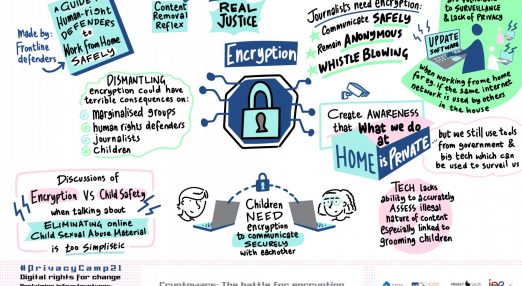
Wiretapping children’s private communications: Four sets of fundamental rights problems for children (and everyone else)
On 27 July 2020, the European Commission published a Communication on an EU strategy for a more effective fight against child sexual abuse material (CSAM). As a long-term proposal is expected to be released by this summer, we review some of the fundamental rights issues posed by the initiatives that push for the scan of all private communications.
Read more
-
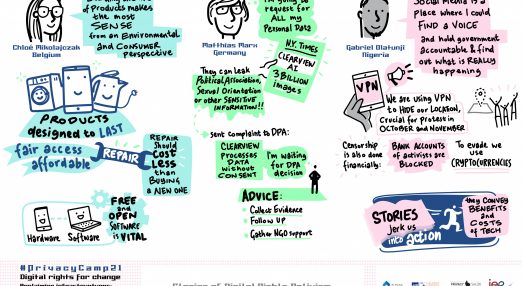
What went down at #PrivacyCamp21?
EDRi’s annual flagship event Privacy Camp took place yesterday, on 26 January, for the first time online. We hope many of you were able to attend and that you found the event just as inspirational as the in-person experience.
Read more
-
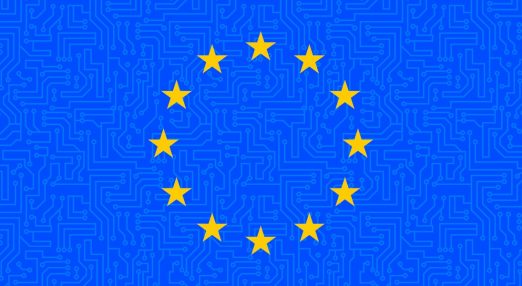
Big Tech’s dominance: only laws can limit its power
Big Tech companies like Facebook have grown so large that the U.S. antitrust authority F.T.C. is considering breaking them up. We need laws that limit the power tech firms wields over our lives.
Read more
-

Benefiting whom? An overview of companies profiting from “digital welfare”
Could private companies be the only ones really profiting from digital welfare? This overview from EDRi member Privacy International looks at the big players.
Read more
-

Looking back at digital rights in the era of a surveillance pandemic
2020 started as a year to build momentum to tackle various digital rights issues, including mass surveillance and freedom of expression online. Needless to say, the global pandemic disrupted not only these efforts but also our health, personal relations, basic survival needs and ways to organise around human rights. After 9 months of living and working in a pandemic, we look back at what we achieved and the ways forward from here.
Read more
-

For a truly “Trustworthy AI,” EU must protect rights and deliver benefits
EDRi member Access Now published a report exploring the actions EU governments are taking to promote what the EU calls Trustworthy AI, what this approach means for human rights, and how European AI strategy is changing, both for EU institutions and national governments.
Read more
-
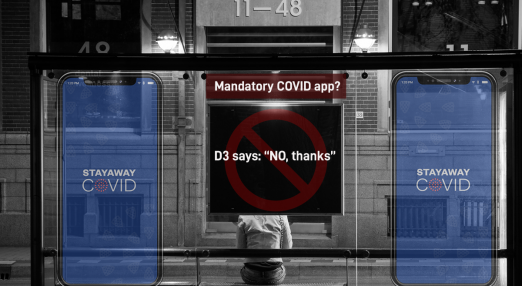
D3 opposes Portuguese efforts to make COVID app mandatory
In this post, EDRi's member Defesa dos Direitos Digitais (D3) discusses the proposed law on making the tracing app “Stayaway Covid” obligatory in Portugal and analyses the consequences of such legislation.
Read more
-
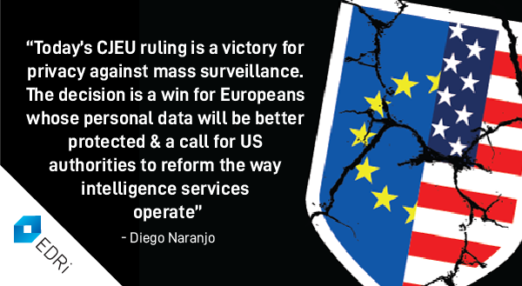
A victory for us all: European Court of Justice makes landmark ruling to invalidate the Privacy Shield
Today, 16 July 2020, the Court of Justice of the European Union (CJEU) invalidated the EU-US Privacy Shield. The ruling proves a major victory for EU residents on how their personal data is processed and used by platforms like Facebook.
Read more
